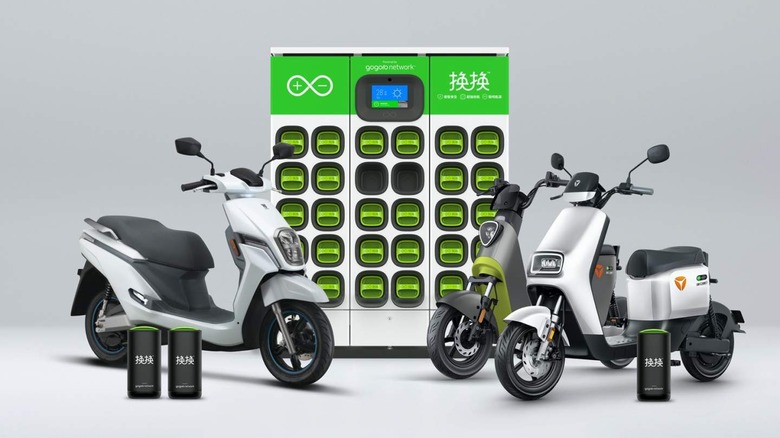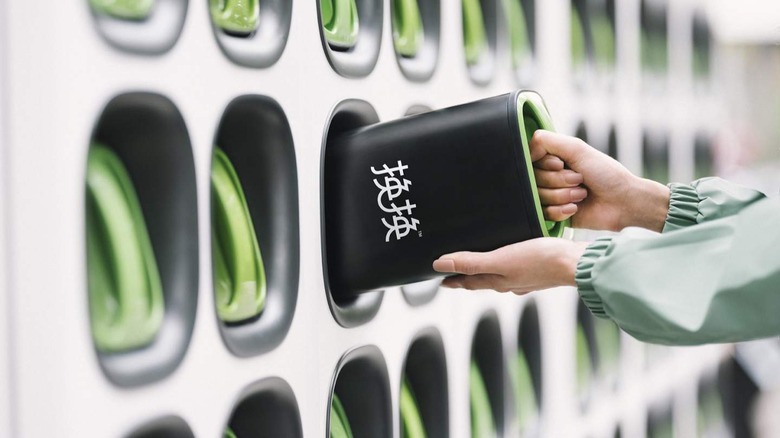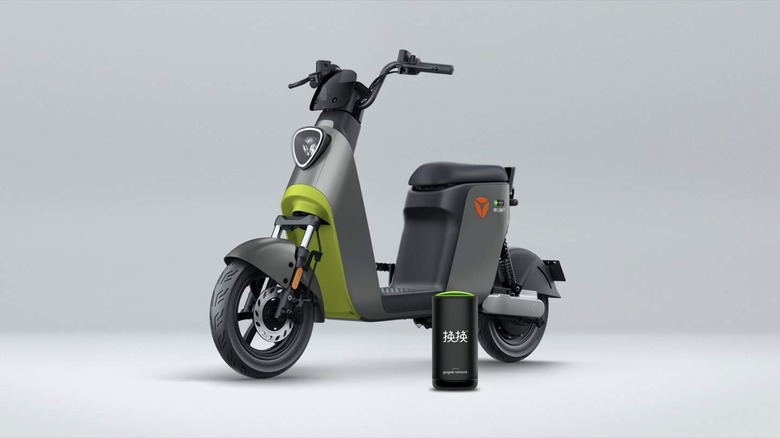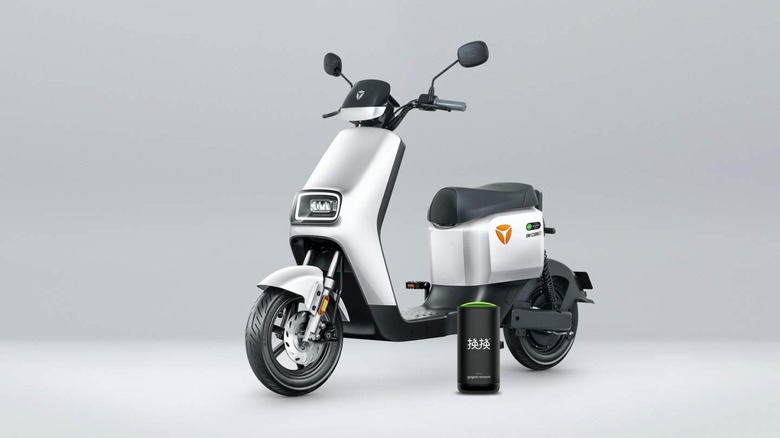Gogoro Starts Battery Swaps In Its Biggest - And Toughest - Market Yet
Gogoro has launched its signature EV feature in what may well be its toughest market so far, with battery swapping stations now open for business in China. The announcement comes after Gogoro partnered with electric scooter companies Yadeo and DCJ, with three new electric bikes unveiled today for the local market.
The three companies are collaborating under a new brand, Huan Huan, that will debut in Hangzhou first. Additional cities will be added in 2022, Gogoro says.

From Yadea, there are the first two models available for use with the new Huan Huan network. Each supports the interchangeable battery packs around which Gogoro has built its business, and which allow riders to avoid traditional recharge times. Instead, they can access fully-charged packs in a Huan Huan swap-station, leaving behind their depleted batteries for another rider once recharged.

From DCJ, meanwhile, the news saw a prototype electric scooter revealed. The company is the number 1 gas-powered two-wheel manufacturer in China, and says it plans to launch the electric version sometime in 2022.
It's a key expansion for Gogoro, and arguably its toughest challenge yet. More than 300 million two-wheel riders are in China, making it the world's largest such market.

It's also one poised for an electric reinvention. China has been aggressive in its push to replace internal combustion vehicles with electric ones, both for two- and four-wheeled models.
On the scooter side, new regulations are expected to see around 270 million vehicles that don't meet the upgraded emissions and safety standards retired by 2025. That will mean a considerable audience of riders looking for replacements, a market that Gogoro and its partners are hoping to capitalize on.

Last month, Gogoro revealed a plan to go public, which would value the company at $2.35 billion. The goal is to list on the NASDAQ – through a merger with SPAC Poema Global Holdings Corp. – sometime in the first quarter of 2022. It built on its partnership with Foxconn, announced in July, which was billed as a way for the battery-swappable scooters to push further into the mainstream. That will include more models, and more affordable models, particularly in China and other scooter-centric countries.
